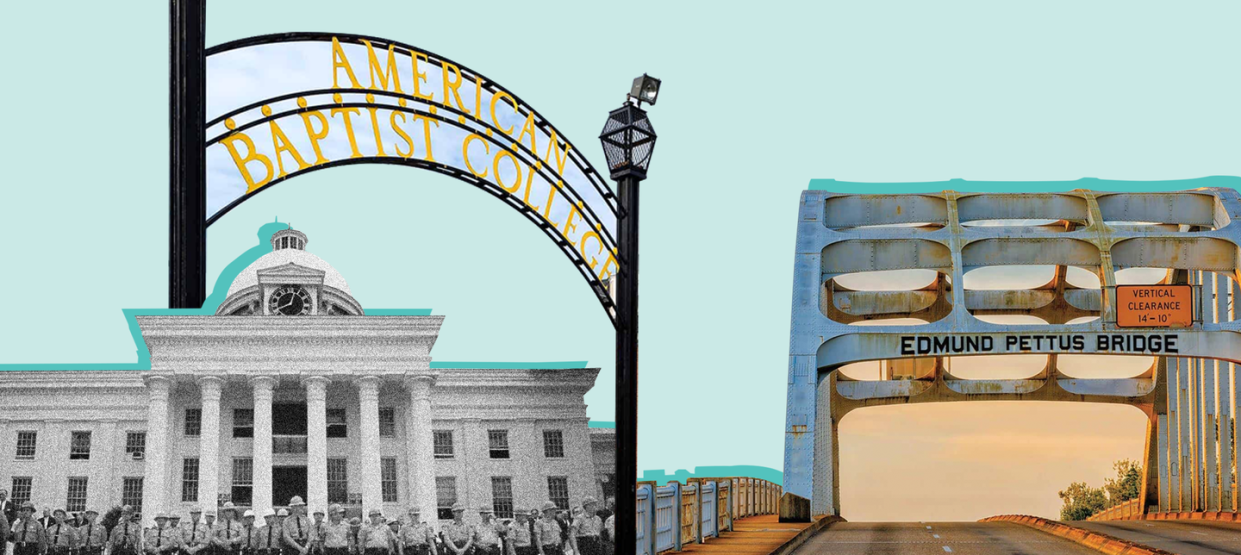Get a Closer Look at the Life and Legacy of MLK Jr. With a Virtual Tour of the U.S. Civil Rights Trail

- Oops!Something went wrong.Please try again later.
On January 18, 2021, we officially celebrate Martin Luther King Jr. Day. Often described as “a day on, not a day off,” the holiday celebrating Dr. Martin Luther King Jr. is meant to be treated as a day of service — if you haven't yet figured out a way to give back this holiday, check out this helpful list of volunteer opportunities in your area.
In the meantime, you can also learn more about Dr. King's life on the U.S. Civil Rights Trail's website. Whether you're are interested in furthering your own education or teaching your children more about the civil rights movement in an effort to have deeper family conversations about the "Black Lives Matter" movement, the opportunity to visit the U.S. Civil Rights Trail (USCRT) is currently virtual and free — here's what to know.
The USCRT, which was launched two years ago, is a collection of churches, courthouses, schools and museums significant to the civil rights movement of the 1950s and 1960s. Since the trail spans 15 states and the District of Columbia, it may be impractical for your family to visit all of these important sites in person. Thankfully, these virtual tours, along with our list of books about race for kids, are a great way to facilitate a conversation about race and anti-racism at home.
What constitutes a 'virtual tour' differs from museum to museum — on USCRT's website, you'll find a timeline of the movement and interactive map showing you where historically significant events took place. You'll also be able to access 10 different experiences, which explain key figures, struggles and victories during the civil rights movement, including:
"Martin Luther King Jr." — Beginning at 501 Auburn Avenue, Atlanta, the house where Dr. King spent the first 12 years of his life, you follow the legendary Civil Rights activist on his journey from a child in Jim Crow era Atlanta, to working as a pastor in the Southern Christian Leadership Conference, to leading the March on Washington — in addition to learning more about all of his lesser-known stops along the way.
"Sitting Down to Take a Stand" — A look at non-violent, student-led sit-ins that took place at segregated businesses like the Woolworth’s department store lunch counter in Greensboro, North Carolina.
"Risking It All and Riding for Freedom" — Activists known as Freedom Riders challenged Southern state's failure to enforce desegregated public buses by riding interstate buses across the South. This online exhibit highlights important stops, and violence perpetrated against the Freedom Riders.
"Representative John Lewis" — U.S. Representative John Lewis of Georgia has dedicated more than 60 years to the fight for Civil Rights, learn more about this Medal of Freedom-awarded activist.
"Remembering Emmett Till" — The murder of Emmett Hill, the trial of his accusers, and the long-lasting influence of his death are explored in this online experience.
"Marching for the Vote" — You can follow the route voting rights activists took in their 1965 Selma-to-Montgomery march, which was dramatized in Ava DuVernay's Selma.
If you'd like to plan an in-person tour of these sites for yourself, the USCRT website has more information on how to visit the 100+ destinations on its trail.
You Might Also Like

